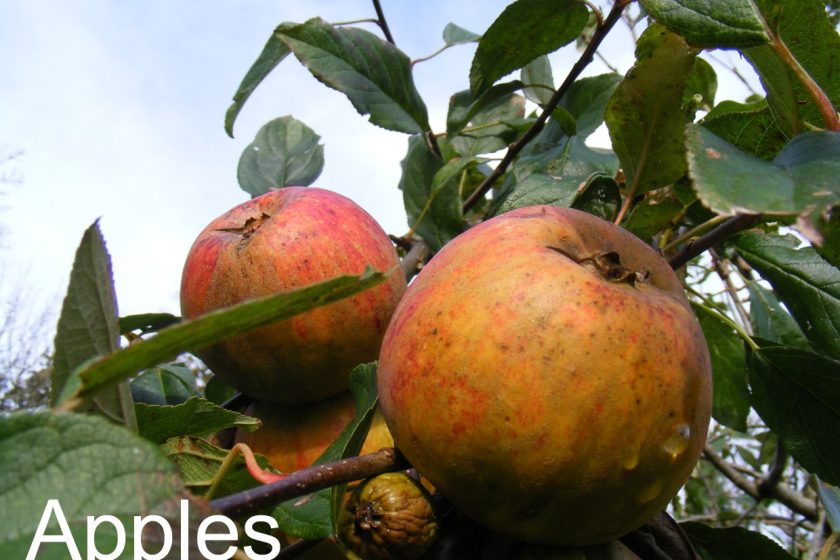An Apple a Day

No fruit endures through all of our mythologies so much as the humble apple. From the beginning of our cultures apples are associated with love, fertility, virility, sensuality, sexuality, beauty, pleasure, luck, health, comfort, wisdom and temptation.
Since I started making my own cider I have just fallen in love with apples. It seems no coincidence that I sit here writing this on St. Valentine’s Day because Mythology often uses apples as a symbol of love and beauty. The very word ‘fruit’ has its roots in the Latin “Fruor” meaning “I delight in”.
Many of the myths about our origins connect us to a garden or a paradise filled with fruit trees, including the apple. Adam and Eve in the Garden of Eden, the Teutonic Iduna, Greek myths abound with apples at their core. The name of the Celtic Isle of Avalon, a land of warm breezes and sunlight where the people never age or know discomfort, comes from the Welsh word for apple; afal. To the Iroquois Indians, the apple tree is the central tree of heaven.
In ancient times, apple trees are reputed to have grown wild in Central Asia and China, as well as in Southwest Asia, where biblical historians place the Garden of Eden. They have always been with us, even the Stone Age peoples of Europe cultivated apple trees. The Greeks and Romans both cultivated apples and it was the Romans of course who first bought the arts of apple cultivation to Britain. Where would we be without the Romans?
Famous physicians such as Galen and later Hippocrates, recommend sweet apples with meals as aids to digestion and sour apples only for fainting and constipation and the gist of this remains true to today. Herbalists have long used apples in the treatment of digestive disorders. Generally to treat constipation, use raw apples and grate them for added effect. This helps to combat putrefaction in the gut and apple juice is even capable of destroying some viruses. Apples that are acidic have a more laxative effect.
For treating diarrhoea or mild gastritis, use stewed or baked apples with appropriate spices. Apple can even be used as a poultice for skin inflammation and its extracts are already used in the cosmetics industry to make shampoos and skin exfoliates. The smell of apples is also used in perfumes.

Apples and humans have a natural affinity and even the older varieties, such as crab apple (or wild apple) found a variety of uses in ancient times, such as cider, jams and jellies. Crab apple jelly is well worth the effort of making, as is Quince jelly. Apples make an excellent accompaniment to fatty meats as the malic acid helps to break them down in the digestive process. Apple jams, pies, cheeses, sauces and desserts are all ways to use this essential fruit.
The skin of an (unsprayed) apple contains polyphenols that protect it from the oxidising rays of the sun. They are often rich in iron and potassium. They contain sorbitol, a natural sugar alcohol and fructose, which is metabolised more slowly than industrial sugars and sweeteners. Even the smell of apples has been found to lower blood pressure. They contain pectin and other substances that help to lower LDL cholesterol and increase beneficial HDL cholesterol. Of course the humble apple is also high in antioxidant vitamin C – a whole medical treasure chest in one simple fruit.
Traditionally apples have always been dried for preservation but more commercial versions of this are exposed to sulphur fumes. They were sliced and hung on strings in the rafters in medieval times for preserving and traces of dried apples can even be dated back to 2000 BC in Egypt. Although they lose all their vitamin C during drying, dried apple is a useful source of quickly assimilated carbohydrates, which is why athletes often use it. There are thousands of varieties of apples, from small, sweet and crisp to large, fluffy and sour, but the bio-diversity of this ‘food of love’ is already compromised. According to Cary Fowler, executive secretary of the Global Crop Diversity Trust.
“At the end of the 1800’s, 7,000 named apple varieties were grown in the United States. Now, 6,800 of those are as extinct as the dinosaurs”.
So why not adopt an apple tree yourself, there are many varieties including dwarf ones that stay small and grow big fruits. You can even find grafted apples trees that grow more than one variety of the fruit on the same trunk.
As J.T. Stinson once proclaimed in an address to the St. Louis Expositon; “An apple a day keeps the doctor away.” One of the best ‘simples’ on the planet.